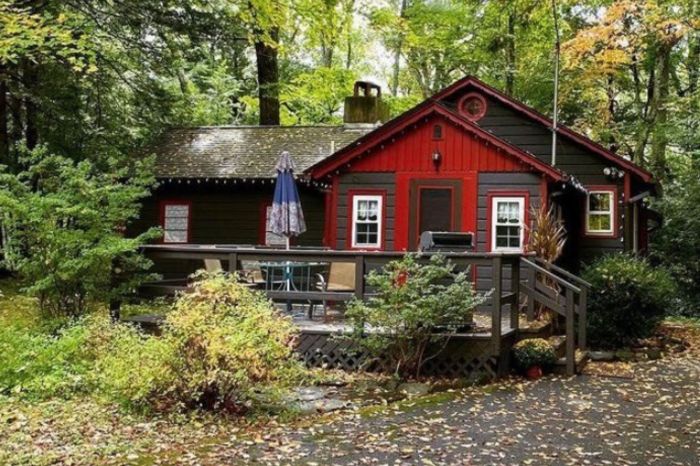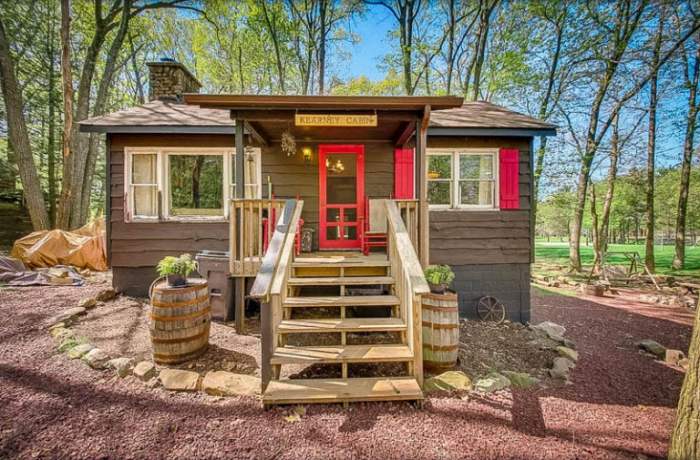Houses for Rent in Pennsylvania A Comprehensive Guide
Pennsylvania Rental Housing Market Overview

Source: familyfunpa.com
Houses for rent in pennsylvania – The Pennsylvania rental market presents a diverse landscape, influenced by factors such as location, property type, and economic conditions. Rental costs vary significantly across the state, reflecting differences in population density, job markets, and local amenities. This overview examines the current market trends and provides a comparative analysis of rental costs in several key Pennsylvania cities.
Rental Prices Across Major Pennsylvania Cities
Rental rates in Pennsylvania’s major cities differ considerably. Philadelphia, as the state’s largest city, generally commands higher rents than other areas due to its robust job market and high demand for housing. Pittsburgh, while a significant city, typically has lower rental costs than Philadelphia. Harrisburg, the state capital, offers a middle ground in terms of rental prices. Smaller cities and towns throughout the state display even greater variation, with rural areas often exhibiting lower costs than urban centers.
Trends in Rental Property Types
The Pennsylvania rental market encompasses a range of property types, including single-family homes, apartments, and townhouses. Apartment rentals are prevalent in urban areas, offering varying sizes and amenities. Single-family homes are more common in suburban and rural settings, often providing more space and privacy. Townhouses represent a compromise, offering a balance between apartment-style convenience and the independence of a house.
Factors Influencing Rental Rates
Several factors influence rental rates across different Pennsylvania regions. Proximity to major employment centers, access to quality schools, and the availability of amenities (parks, shopping centers, public transportation) all play a significant role. Local economic conditions and the overall supply and demand for rental properties also impact rental costs. Areas with strong job growth and limited housing inventory tend to experience higher rental rates.
Average Rental Costs in Major Pennsylvania Cities
| City | Average Monthly Rent (1-Bedroom) | Average Monthly Rent (2-Bedroom) | Average Cost per Square Foot |
|---|---|---|---|
| Philadelphia | $1,800 | $2,400 | $2.50 |
| Pittsburgh | $1,300 | $1,700 | $1.80 |
| Harrisburg | $1,100 | $1,400 | $1.50 |
| State College | $1,500 | $2,000 | $2.00 |
Note: These figures are approximate averages and may vary based on specific property features and location within the city.
Property Types and Features
Pennsylvania offers a diverse range of rental properties, catering to various preferences and budgets. Understanding the different property types and their features is crucial for prospective tenants. This section details the variety of houses available, compares their features, and highlights desirable amenities.
Variety of Houses Available for Rent
Rental properties in Pennsylvania range from cozy apartments in urban centers to spacious single-family homes in suburban and rural areas. Townhouses provide a middle ground, offering a combination of privacy and convenience. The specific types of houses available vary depending on the region, with Victorian-style homes common in some areas and more modern constructions prevalent in others.
Comparison of Property Features
Key features to consider when searching for a rental property include the number of bedrooms and bathrooms, yard size (if applicable), and the availability of amenities. Larger homes naturally command higher rental rates, as do properties with desirable features like updated kitchens, modern bathrooms, and in-unit laundry.
Popular House Styles in Different Regions
Pennsylvania’s diverse architectural heritage is reflected in the variety of house styles found across the state. For instance, Victorian-era homes are prevalent in older cities like Philadelphia and Pittsburgh, while more contemporary styles are common in newer suburban developments. Rural areas may feature traditional farmhouses or more rustic designs.
Desirable Amenities in Pennsylvania Rental Houses
Many renters prioritize certain amenities when searching for a rental property. Some of the most sought-after amenities include:
- In-unit laundry
- Off-street parking
- Central air conditioning
- Dishwasher
- Pet-friendly policies
- Updated kitchen and bathrooms
- Private yard or balcony
Different Property Types and Their Typical Features

Source: myglobalviewpoint.com
| Property Type | Typical Features | Pros | Cons |
|---|---|---|---|
| Apartment | Smaller size, shared amenities, often in multi-unit buildings | Convenience, lower maintenance | Less privacy, potential noise |
| Townhouse | Multiple levels, private entrance, often with a small yard | More space and privacy than apartments, lower maintenance than single-family homes | Shared walls with neighbors |
| Single-Family Home | Largest size, private yard, often detached | Most privacy, ample space | Higher maintenance and cost |
Geographic Considerations for Renters in Pennsylvania
Choosing a rental location in Pennsylvania involves weighing the advantages and disadvantages of different regions, considering factors such as cost of living, commute times, and access to amenities. This section explores the nuances of renting in various parts of the state.
Advantages and Disadvantages of Renting in Different Regions, Houses for rent in pennsylvania
Urban areas like Philadelphia and Pittsburgh offer a vibrant cultural scene, diverse job markets, and convenient access to amenities. However, they often come with higher rental costs and increased competition for housing. Rural areas, on the other hand, typically have lower rental rates and a more tranquil environment but may lack the same level of job opportunities and convenient access to services.
Local Communities and Their Characteristics
Each region of Pennsylvania possesses a unique character. Philadelphia is known for its rich history, diverse neighborhoods, and bustling city life. Pittsburgh boasts a strong industrial heritage and a thriving arts and culture scene. Harrisburg offers a more relaxed atmosphere as the state capital. Rural areas often feature close-knit communities and a slower pace of life.
Cost of Living and Transportation
The cost of living, including housing, transportation, and groceries, varies significantly across Pennsylvania. Urban areas generally have higher costs than rural areas. Transportation costs can also differ, depending on the availability of public transportation and the need for a car. Areas with robust public transportation systems tend to be more affordable for those who do not own a car.
Commute Times and Access to Amenities
Commute times and access to amenities are crucial considerations when choosing a rental location. Urban areas often offer convenient access to various services and amenities, but commute times can be longer due to traffic congestion. Rural areas typically have longer commute times to employment centers and fewer amenities readily available.
Pennsylvania Rental Market Map (Descriptive)
Imagine a map of Pennsylvania. Philadelphia, in the southeast, is a dense cluster of high-rent apartments and diverse housing options. Pittsburgh, in the west, shows a similar pattern but with slightly lower rental costs. Harrisburg, centrally located, represents a more moderate rental market. Smaller cities and towns are scattered across the state, with rental costs generally lower in rural areas.
The closer a location is to major employment centers, the higher the rental rates tend to be.
Tenant Rights and Responsibilities in Pennsylvania
Understanding tenant rights and responsibilities is essential for a smooth and positive rental experience in Pennsylvania. This section Artikels key aspects of Pennsylvania landlord-tenant law, covering lease agreements, maintenance issues, and other important considerations.
Rights and Responsibilities of Tenants
Pennsylvania law grants tenants specific rights, including the right to a safe and habitable dwelling, protection against unlawful eviction, and the right to privacy. Tenants also have responsibilities, such as paying rent on time, maintaining the property in a reasonable condition, and adhering to the terms of the lease agreement.
Lease Agreements and Renewals
A lease agreement is a legally binding contract outlining the terms of the tenancy, including rent amount, payment schedule, lease duration, and responsibilities of both landlord and tenant. Lease renewals are typically handled through a written agreement, often with adjusted terms and conditions.
Summary of Pennsylvania Landlord-Tenant Laws
Pennsylvania landlord-tenant laws are comprehensive and designed to protect the rights of both landlords and tenants. These laws cover various aspects of the rental relationship, including lease agreements, rent payments, security deposits, repairs, and evictions. It’s crucial for tenants to familiarize themselves with these laws.
Addressing Maintenance Issues and Repairs
Landlords are legally obligated to maintain the property in a habitable condition. Tenants should report maintenance issues promptly to their landlord in writing. Failure of the landlord to address necessary repairs can provide grounds for legal action by the tenant.
Key Tenant Responsibilities
- Paying rent on time
- Maintaining the property in a clean and orderly condition
- Reporting any necessary repairs promptly
- Adhering to the terms of the lease agreement
- Respecting the rights of other tenants (if applicable)
Finding and Securing a Rental Property in Pennsylvania
Finding the right rental property in Pennsylvania involves a strategic approach, utilizing various resources and understanding the application process. This section provides guidance on effectively searching for, applying for, and securing a rental property.
Methods for Finding Rental Houses
Several methods exist for finding rental houses in Pennsylvania. Online listings on websites such as Zillow, Apartments.com, and Trulia are popular options. Working with a real estate agent can also be beneficial, especially for those unfamiliar with the local market. Networking with friends, family, and colleagues can also uncover rental opportunities.
Tips for Effectively Searching for Rental Properties
To effectively search for rental properties, define your needs and budget upfront. Consider factors such as location, desired amenities, and commute times. Use online search filters effectively, and be prepared to view multiple properties before making a decision. Don’t hesitate to ask questions and thoroughly review lease agreements.
Applying for a Rental Property and Preparing Documents
The application process typically involves completing a rental application form, providing personal information, employment history, and references. Be prepared to provide proof of income, bank statements, and a credit report. A good credit history and a stable income are essential for approval.
Finding the perfect house for rent can be a challenge, especially in a large state like Pennsylvania. The search often involves considering various factors like location, price, and amenities. However, if you’re open to exploring other regions, you might consider looking at options further north, such as checking out available properties on sites like houses for rent in ontario , before returning your focus to Pennsylvania’s diverse housing market.
Ultimately, the best choice depends on individual preferences and needs.
Negotiating Lease Terms and Conditions
Negotiating lease terms is possible, especially in a buyer’s market. You may be able to negotiate rent amounts, lease duration, or pet policies. Clearly communicate your needs and preferences to the landlord, and be prepared to compromise to reach an agreement.
Completing a Rental Application and Understanding the Lease
Carefully review the rental application and lease agreement before signing. Ensure you understand all terms and conditions, including rent payments, lease duration, responsibilities of both parties, and procedures for addressing maintenance issues. Don’t hesitate to seek clarification on any unclear points.
FAQ Corner: Houses For Rent In Pennsylvania
What is the average security deposit required in Pennsylvania?
Security deposit amounts vary depending on the landlord and property, but are often equivalent to one or two months’ rent.
Can I break my lease early in Pennsylvania?
While leases are legally binding, early termination may be possible under certain circumstances, such as documented breach of contract by the landlord. Consult the lease agreement and Pennsylvania landlord-tenant law for details.
What are my rights regarding pest control in my rental property?
Landlords in Pennsylvania are generally responsible for controlling pests. Report infestations promptly to your landlord. Failure to address the issue may give you legal recourse.
How do I find a reputable real estate agent in Pennsylvania?
Check online reviews, ask for referrals, and verify their license with the Pennsylvania Real Estate Commission.




















